16
Indigenous Language Interpreters and Translators / Intérpretes y Traductores de Lenguas Indígenas:
Toward the Full Enactment of all Language Rights / Hacia un Ejercicio Pleno de los Derechos Lingüísticos
By / Escrito Por: Abigail Castellanos García, Laura Gonzales , Cristina V. Kleinert, Tomás López Sarabia, Edith Matías Juan , Mónica Morales-Good, Nora K. Rivera
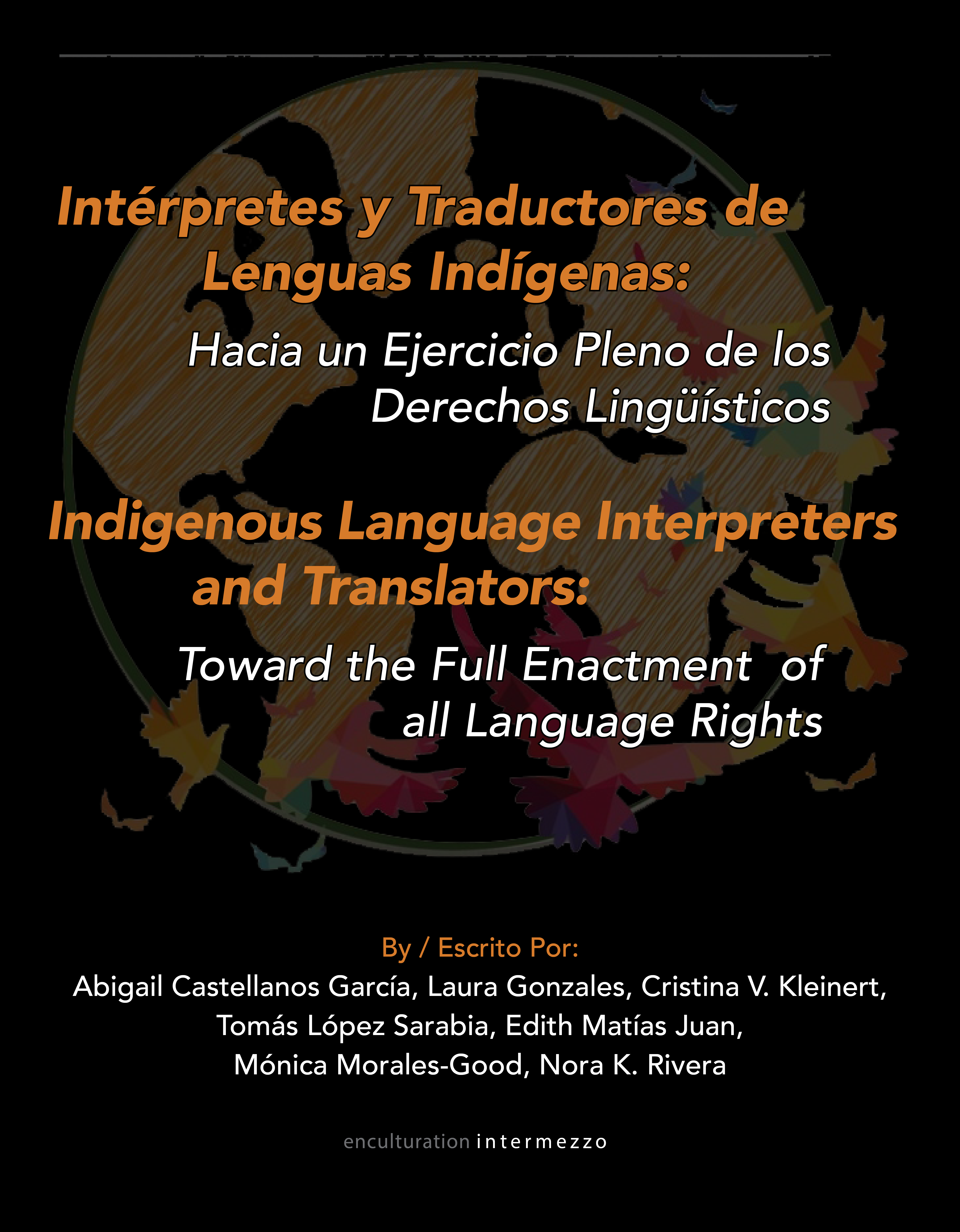
Web VersionISBN: 978-1-7339598-5-8 This ebook is published on the Manifold digital publishing platform.
|
About the Contributors
Escrito Por: / Written By:
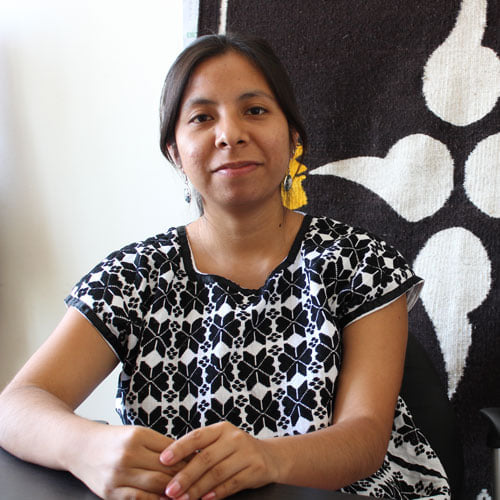
Abigail Castellanos García
Centro Profesional Indígena de Asesoría, Defensa y Traducción A.C.
Originaria de la comunidad de San Juan Tabaá, hablante de la lengua “Xhon” (Zapoteco). Es Licenciada en Ciencias Políticas y Administración Pública por el Instituto de Estudios Superiores de Oaxaca (IESO); Licenciada en Desarrollo Comunitario por la Universidad Nacional Abierta y Distancia de México; Forma parte del equipo organizador de la Feria Internacional del Libro de Estudios de las Mujeres y Feminismos (FILMUFE). Su trabajo se centra en la promoción de los Derechos Humanos, Acceso a la Información, transparencia y rendición de cuentas desde el ejercicio de las comunidades indígenas y Derechos de mujeres indígenas.
Originally from the San Juan Tabaá community, speaker of “Xhon” (Zapoteco). Abigail earned her undergraduate degree in political science and public administration at the Instituto de Estudios Superiores de Oaxaca (IESO). She also holds a degree in community development from the Universidad Nacional Abierta y Distancia de México. Abigail is part of the organizing committee for the Feria Internacional del Libro de Estudios de las Mujeres y Feminismos (FILMUFE, the International Festival of Books about Women and Feminisms). Her work is focused on the promotion of human rights, information access, transparency, and accountability for Indigenous communities and Indigenous women’s rights.

Laura Gonzales
La doctora Laura Gonzales es catedrática de escritura digital y retoricá cultural y directora adjunta del TRACE Innovation Initiative en el Departamento de Inglés en la Universidad de Florida, Gainesville, Florida. Su trabajo se concentra en las intercesiones de la traducción, la comunicación técnica, y el activismo comunitario. La Dra. Gonzales es autora de más de 30 artículos sobre la traducción y la tecnología, y también es autora del libro, Sites of Translation: What Multilinguals Can Teach Us About Digital Writing and Rhetoric (University of Michigan Press, 2018).
Dr. Laura Gonzales is Assistant Professor of Digital Writing and Cultural Rhetorics and Associate Director of the TRACE Innovation Initiative in the Department of English at the University of Florida in Gainesville, Florida. Her work focuses on the intersections of translation, technical communication, and community activism. Dr. Gonzales is the author of more than 30 articles related to translation and technology, and she is also the author of Sites of Translation: What Multilinguals Can Teach Us About Digital Writing and Rhetoric (University of Michigan Press, 2018).
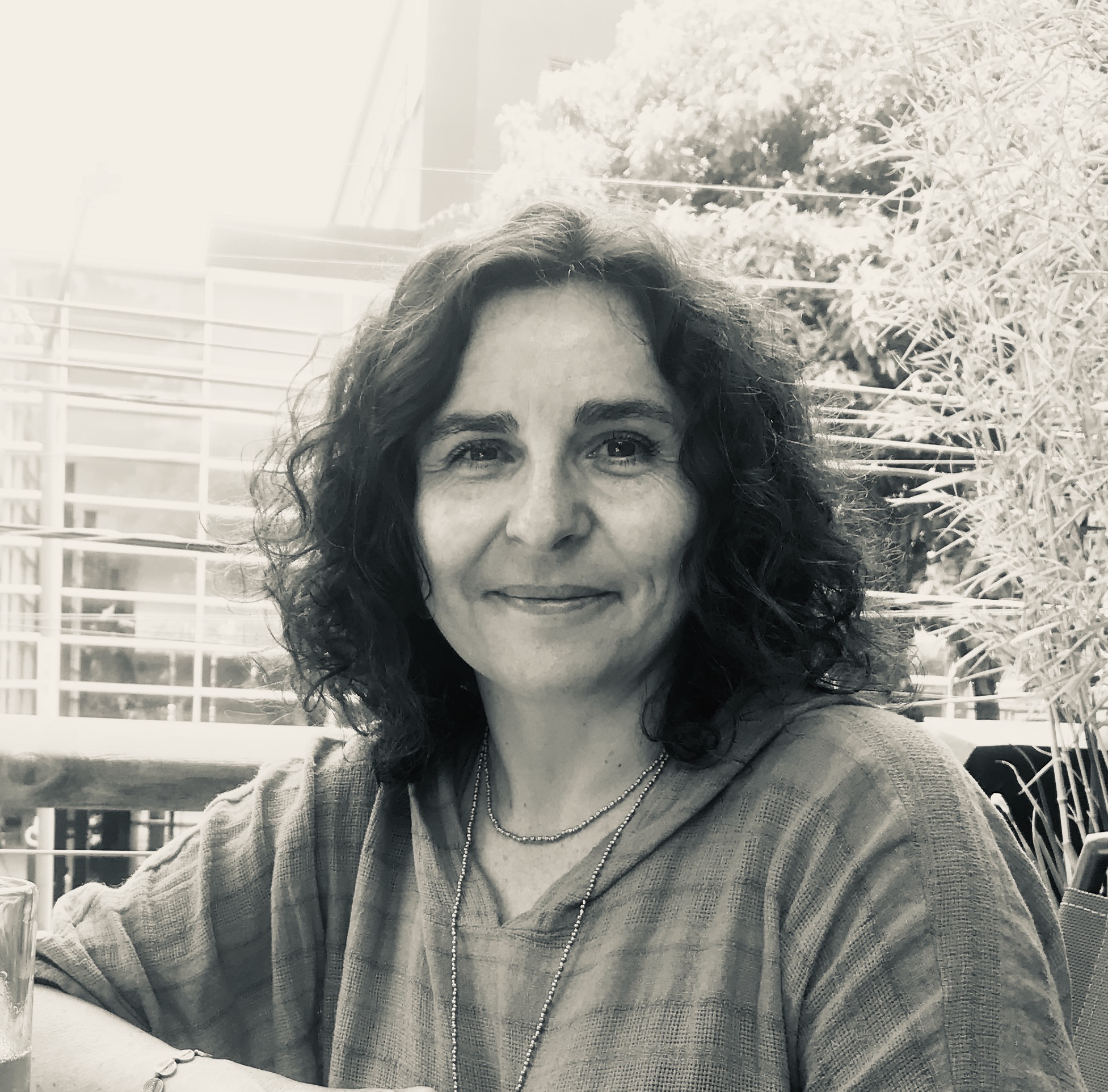
Cristina V. Kleinert tiene un Bi Doctorado en Investigación Educativa con Mención Honorífica por la Universidad Veracruzana (UV) y en Ciencias de la Traducción por la Universidad de Amberes, Bélgica. Actualmente es docente de tiempo completo en la Facultad de Idiomas de la UV en Xalapa, Veracruz; docente del Máster Euro-Latinoamericano en Educación Intercultural en la Universidad Nacional de Educación a Distancia (UNED) en Madrid, España e investigadora asociada de la Universidad de Amberes, Bélgica. Es intérprete y traductora de alemán, ruso, inglés y catalán; miembro de la Red Nacional de Intérpretes y Traductores de Lenguas indígenas (RNITLI) y del Sistema Nacional de Investigadores (SNI).
Cristina V. Kleinert holds a bi-doctorate in educational research granted with honors by the Universidad Veracuzana (UV) and in translation sciences granted by the University of Antwerp, Belgium. Currently, she is a full-time instructor as part of the Faculty of Languages at the UV in Xalapa, Veracruz; an instructor in the Euro-Latin American master’s program in intercultural education at the Universidad Nacional de Educación a Distancia (UNED, the National University for Distance Education) in Madrid, Spain; and an associate researcher at the University of Antwerp in Belgium. She is also a translator and interpreter of German, Russian, English, and Catalán and a member of the Red Nacional de Intérpretes y Traductores de Lenguas Indígenas (RNITLI, National Network of Indigenous Language Interpreters and Translators) as well as the Sistema Nacional de Investigadores (SNI, National Registry of Researchers).
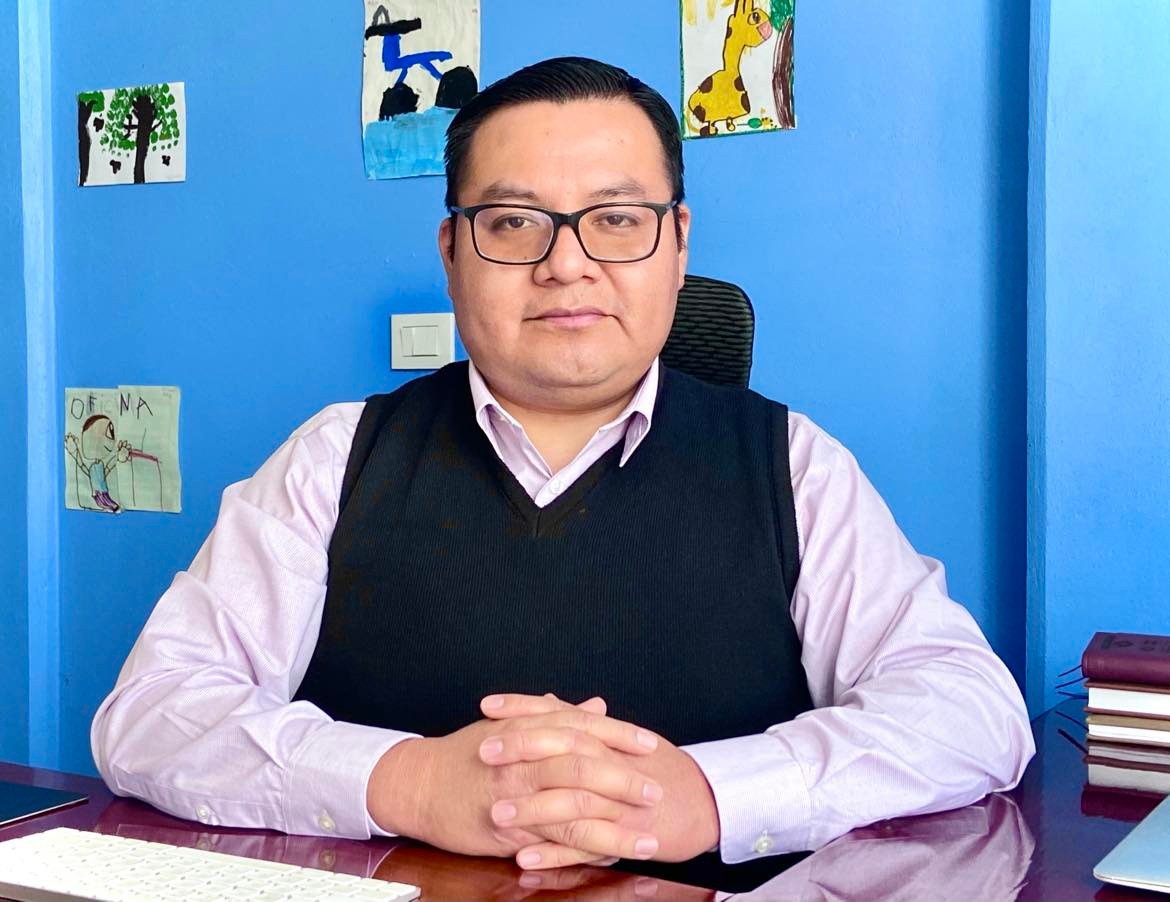
Tomás López Sarabia
Originario de la comunidad de Santiago Nuyoó, hablante de lengua “Tu´un savi” (Mixteco). Tomás es Licenciado en Derecho y Ciencias Sociales por la Universidad Autónoma "Benito Juárez" de Oaxaca (UABJO); Es Socio fundador del Centro Profesional Indígena de Asesoría, Defensa y traducción A.C. (CEPIADET), en donde ha colaborado en distintos proyectos, tales como el asesoramiento y acompañamiento a comunidades, organizaciones e instituciones que trabajan con pueblos indígenas dentro de la República Mexicana. Actualmente es Presidente del Consejo Directivo de CEPIADET y ha fungido como representante ante el Consejo Nacional del Instituto Nacional de Lenguas Indígenas (INALI).
Originally from the Santiago Nuyoó community, speaker of “Tu’un savi” (Mixteco). Tomás earned his undergraduate degree in law and social sciences at the Universidad Autónoma Benito Juárez de Oaxaca (UABJO). He is a founding member of the Centro Profesional Indígena de Asesoría, Defensa y traducción A.C. (CEPIADET, the Professional Center for Indigenous Consulting, Defense, and Translation), where he has contributed to multiple projects, including projects related to providing legal counsel and support to communities, organizations, and institutions that work with Indigenous communities in the Mexican Republic. Currently, Tomás is President of CEPIADET’s governing board, and he has also served as a representative before the national council of the Instituto Nacional de Lenguas Indígenas (INALI, the National Council of Indigenous Languages).
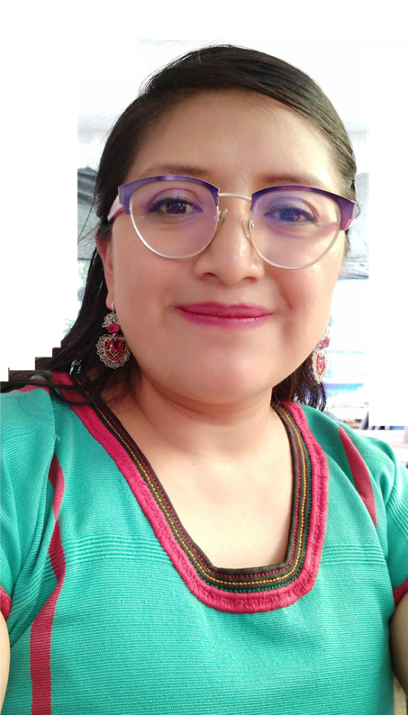
Edith Matías Juan
Originaria de la comunidad de Villa Díaz Ordaz, hablante de la lengua “Dixhzaa” (Zapoteco). Licenciada en Ciencias de la Educación por la Universidad Autónoma "Benito Juárez" de Oaxaca (UABJO), intérprete en lengua indígena “Dixhzaa” (Zapoteco) – Español, acreditada por el Instituto Nacional de Lenguas Indígenas (INALI). Es promotora de los derechos lingüísticos de los pueblos indígenas, desarrollando procesos de formación de intérpretes y coordinando la campaña “Los Derechos Viven en Todas las Lenguas”. Su trabajo se centra en la prestación de servicios de interpretación y traducción de lenguas indígenas en el sistema de justicia, además ha trabajado en la promoción del ejercicio de los derechos de las mujeres indígenas.
Originally from the Villa Díaz Ordaz community, speaker of “Dixhzaa” (Zapoteco). Edith earned her undergraduate degree in educational sciences at the Universidad Autónoma Benito Juárez de Oaxaca (UABJO). She is an interpreter of the Indigenous language “Dixhzaa” (Zapoteco) and Spanish, accredited by the Instituto Nacional de Lenguas Indígenas (INALI, the National Council of Indigenous Languages). Edith is a promoter of Indigenous language rights and is developing processes for interpreter training through her campaign Los Derechos Viven en Todas las Lenguas (Human Rights Live in Every Language). Her work is focused on providing Indigenous language interpretation and translation services in the justice system, and she has also worked to advocate for the enactment of Indigenous women’s rights.
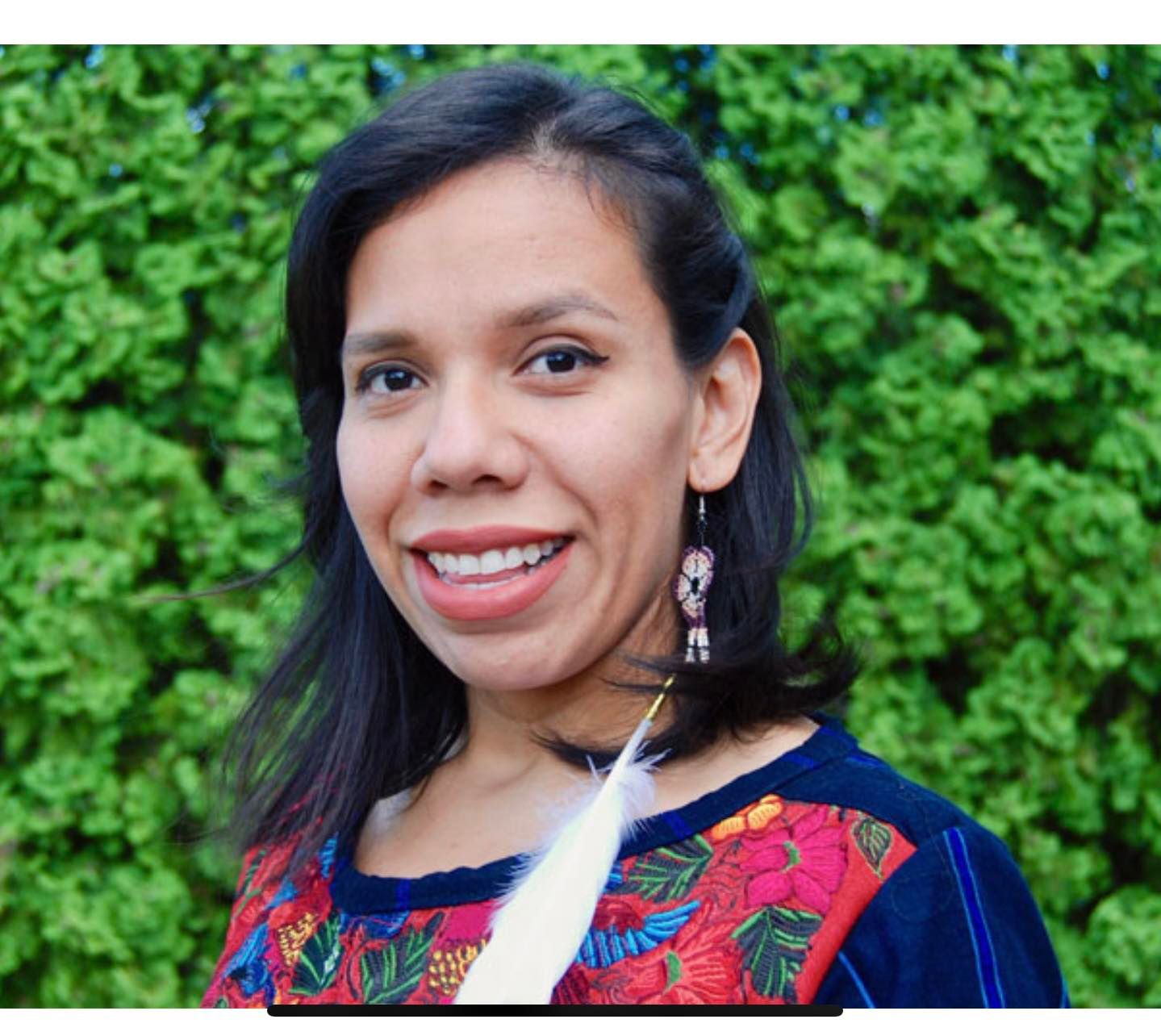
Mónica Morales-Good PhD. es profesora asistente en el Departamento de Lenguas y Literaturas mundiales de la Universidad de Columbia Británica Okanagan. Su trabajo se centra en la reclamación y revitalizacion de lenguas indígenas y los derechos lingüísticos de los Pueblos Indígenas, específicamente para el caso de Oaxaca, México. Su disertación se enfoca en el papel del intérprete de lenguas indígenas como un guardián cultural y del conocimiento y propone la colaboración del derecho consuetudinario con el sistema legal estatal. Mónica ha realizado investigación de participación comunitaria en conjunto con CEPIADET. Su investigación da voz a los sobrevivientes indígenas del sistema legal y aboga por mejores programas de capacitación para intérpretes de idiomas indígenas
Mónica Morales-Good, PhD, is Assistant Professor of Teaching in the Department of Languages and World Literatures at The University of British Columbia Okanagan. Her work strives toward the revitalization of Indigenous languages and linguistic rights for Indigenous peoples, specifically in the case of Oaxaca, Mexico. Her dissertation traces the role of the Indigenous language interpreter as a culture- and knowledge-keeper and proposes a collaboration between the Indigenous justice systems and state jurisdiction. Monica has performed community-engagement research in conjunction with CEPIADET. Her research gives voice to Indigenous survivors of the legal system and advocates for better training programs for Indigenous language interpreters while interacting in the legal setting.
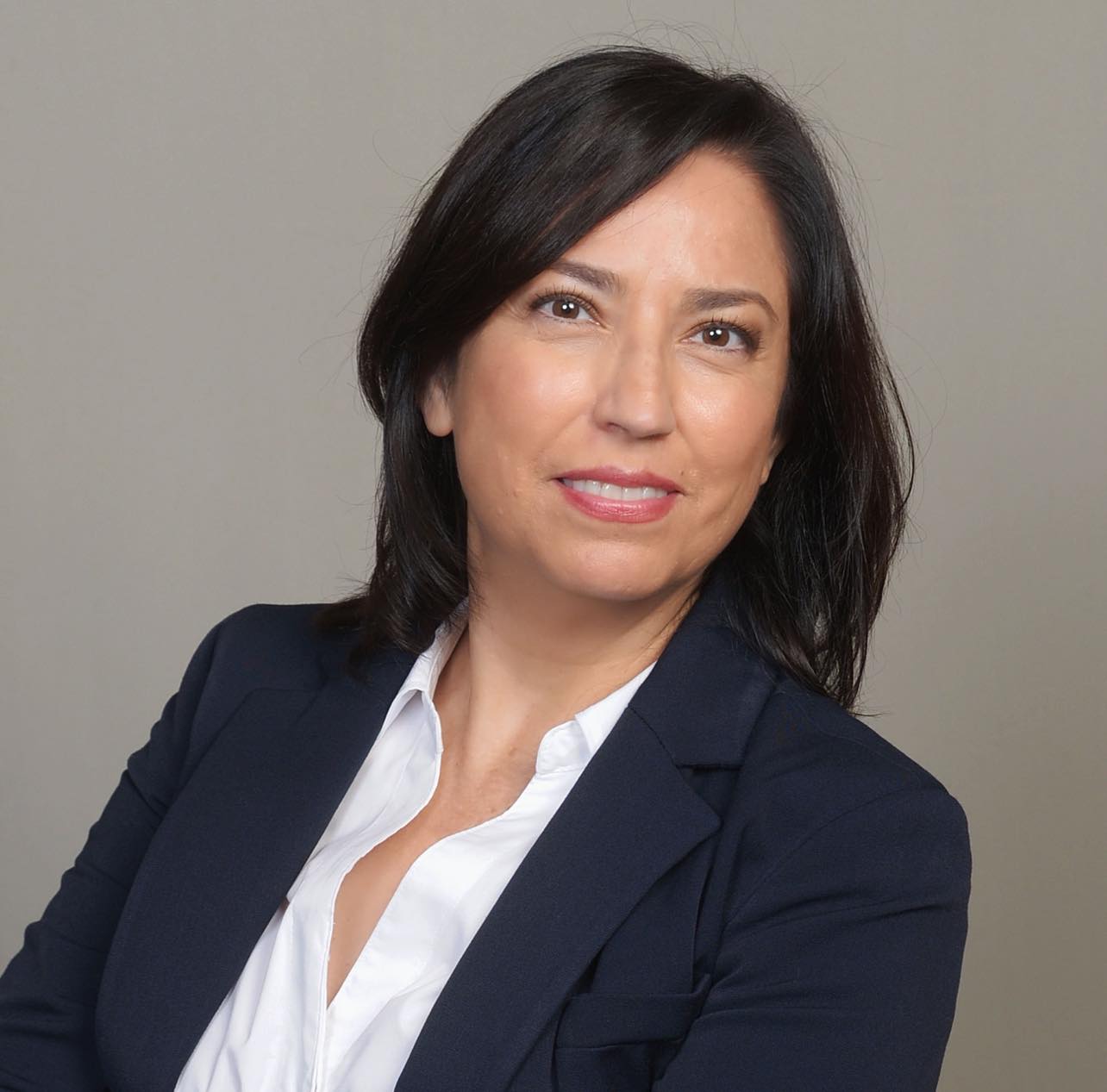
Nora K. Rivera es profesora de retórica, composición, y comunicación técnica en Chapman University. Es graduada de la University of Texas at El Paso (UTEP) con un doctorado en Retórica y Composición, en donde recibió el premio para estudiantes en La Investigación más Destacada en Retórica y Composición en 2019. La Dra. Riveracuenta con una Maestría en Administración de Empresas con especialidad en Mercadotecnia y una Maestría en Literatura y Lingüística en Español. Su disertación, La mediación retórica: Investigando el activismo en la traducción e interpretación en lenguas indígenas a través de enfoques indígenas, recibió el premio de La Disertación más Destacada en 2022 por la American Association of Hispanics in Higher Education (AAHHE) y el premio de Mención Honorífica por la Latin American Studies Association (LASA). La Dra. Rivera se especializa en temas sobre la retórica Latine e Indígena y sus conexiones con la comunicación técnica en contextos locales y transnacionales. Su trabajo multidisciplinario ha sido publicado en la revista College Composition and Communication, la publicación más emblemática de los estudios en retórica y composición en los Estados Unidos; la revista Chicana/Latina Studies de Mujeres Activas en Letras y Cambio (MALCS); Programmatic Perspectives, la revista del Council for Programs in Technical and Scientific Communication (CPTSC); Technical Communication, la revista de la Society for Technical Communication (por publicarse próximamente); y en Journal of Teaching Writing.
Nora K. Rivera is an Assistant Professor at Chapman University where she teaches rhetoric, composition, and technical communication courses. She graduated from the University of Texas at El Paso with a Ph.D. in Rhetoric and Composition, where she received the Rhetoric and Composition Outstanding Research student award in 2019. She also holds a Master of Business Administration in Marketing and a Master of Arts in Spanish Literature and Linguistics. Her dissertation, The Rhetorical Mediator: Understanding Agency in Indigenous Translation and Interpretation through Indigenous Approaches to UX, received the 2022 Outstanding Dissertation award by the American Association of Hispanics in Higher Education (AAHHE) and the 2022 Honorable Mention award by the Latin American Studies Association (LASA). Rivera’s research centers on Latinx and Indigenous rhetorics and their intersections with technical and professional communications in both local and transnational contexts. Her multidisciplinary work has been published in College Composition and Communication journal, the flagship journal in rhetoric and composition studies; the Chicana/Latina Studies Journal of Mujeres Activas en Letras y Cambio (MALCS); Programmatic Perspectives, the journal of the Council for Programs in Technical and Scientific Communication (CPTSC); Technical Communication, the journal of the Society for Technical Communication (forthcoming); and the Journal of Teaching Writing.
Traducido Por: / Translated By:

Abigail Castellanos García
Centro Profesional Indígena de Asesoría, Defensa y Traducción A.C.
Originaria de la comunidad de San Juan Tabaá, hablante de la lengua “Xhon” (Zapoteco). Es Licenciada en Ciencias Políticas y Administración Pública por el Instituto de Estudios Superiores de Oaxaca (IESO); Licenciada en Desarrollo Comunitario por la Universidad Nacional Abierta y Distancia de México; Forma parte del equipo organizador de la Feria Internacional del Libro de Estudios de las Mujeres y Feminismos (FILMUFE). Su trabajo se centra en la promoción de los Derechos Humanos, Acceso a la Información, transparencia y rendición de cuentas desde el ejercicio de las comunidades indígenas y Derechos de mujeres indígenas.
Originally from the San Juan Tabaá community, speaker of “Xhon” (Zapoteco). Abigail earned her undergraduate degree in political science and public administration at the Instituto de Estudios Superiores de Oaxaca (IESO). She also holds a degree in community development from the Universidad Nacional Abierta y Distancia de México. Abigail is part of the organizing committee for the Feria Internacional del Libro de Estudios de las Mujeres y Feminismos (FILMUFE, the International Festival of Books about Women and Feminisms). Her work is focused on the promotion of human rights, information access, transparency, and accountability for Indigenous communities and Indigenous women’s rights.

Laura Gonzales
La doctora Laura Gonzales es catedrática de escritura digital y retoricá cultural y directora adjunta del TRACE Innovation Initiative en el Departamento de Inglés en la Universidad de Florida, Gainesville, Florida. Su trabajo se concentra en las intercesiones de la traducción, la comunicación técnica, y el activismo comunitario. La Dra. Gonzales es autora de más de 30 artículos sobre la traducción y la tecnología, y también es autora del libro, Sites of Translation: What Multilinguals Can Teach Us About Digital Writing and Rhetoric (University of Michigan Press, 2018).
Dr. Laura Gonzales is Assistant Professor of Digital Writing and Cultural Rhetorics and Associate Director of the TRACE Innovation Initiative in the Department of English at the University of Florida in Gainesville, Florida. Her work focuses on the intersections of translation, technical communication, and community activism. Dr. Gonzales is the author of more than 30 articles related to translation and technology, and she is also the author of Sites of Translation: What Multilinguals Can Teach Us About Digital Writing and Rhetoric (University of Michigan Press, 2018).

Edith Matías Juan
Originaria de la comunidad de Villa Díaz Ordaz, hablante de la lengua “Dixhzaa” (Zapoteco). Licenciada en Ciencias de la Educación por la Universidad Autónoma "Benito Juárez" de Oaxaca (UABJO), intérprete en lengua indígena “Dixhzaa” (Zapoteco) – Español, acreditada por el Instituto Nacional de Lenguas Indígenas (INALI). Es promotora de los derechos lingüísticos de los pueblos indígenas, desarrollando procesos de formación de intérpretes y coordinando la campaña “Los Derechos Viven en Todas las Lenguas”. Su trabajo se centra en la prestación de servicios de interpretación y traducción de lenguas indígenas en el sistema de justicia, además ha trabajado en la promoción del ejercicio de los derechos de las mujeres indígenas.
Originally from the Villa Díaz Ordaz community, speaker of “Dixhzaa” (Zapoteco). Edith earned her undergraduate degree in educational sciences at the Universidad Autónoma Benito Juárez de Oaxaca (UABJO). She is an interpreter of the Indigenous language “Dixhzaa” (Zapoteco) and Spanish, accredited by the Instituto Nacional de Lenguas Indígenas (INALI, the National Council of Indigenous Languages). Edith is a promoter of Indigenous language rights and is developing processes for interpreter training through her campaign Los Derechos Viven en Todas las Lenguas (Human Rights Live in Every Language). Her work is focused on providing Indigenous language interpretation and translation services in the justice system, and she has also worked to advocate for the enactment of Indigenous women’s rights.

Nora K. Rivera es profesora de retórica, composición, y comunicación técnica en Chapman University. Es graduada de la University of Texas at El Paso (UTEP) con un doctorado en Retórica y Composición, en donde recibió el premio para estudiantes en La Investigación más Destacada en Retórica y Composición en 2019. La Dra. Riveracuenta con una Maestría en Administración de Empresas con especialidad en Mercadotecnia y una Maestría en Literatura y Lingüística en Español. Su disertación, La mediación retórica: Investigando el activismo en la traducción e interpretación en lenguas indígenas a través de enfoques indígenas, recibió el premio de La Disertación más Destacada en 2022 por la American Association of Hispanics in Higher Education (AAHHE) y el premio de Mención Honorífica por la Latin American Studies Association (LASA). La Dra. Rivera se especializa en temas sobre la retórica Latine e Indígena y sus conexiones con la comunicación técnica en contextos locales y transnacionales. Su trabajo multidisciplinario ha sido publicado en la revista College Composition and Communication, la publicación más emblemática de los estudios en retórica y composición en los Estados Unidos; la revista Chicana/Latina Studies de Mujeres Activas en Letras y Cambio (MALCS); Programmatic Perspectives, la revista del Council for Programs in Technical and Scientific Communication (CPTSC); Technical Communication, la revista de la Society for Technical Communication (por publicarse próximamente); y en Journal of Teaching Writing.
Nora K. Rivera is an Assistant Professor at Chapman University where she teaches rhetoric, composition, and technical communication courses. She graduated from the University of Texas at El Paso with a Ph.D. in Rhetoric and Composition, where she received the Rhetoric and Composition Outstanding Research student award in 2019. She also holds a Master of Business Administration in Marketing and a Master of Arts in Spanish Literature and Linguistics. Her dissertation, The Rhetorical Mediator: Understanding Agency in Indigenous Translation and Interpretation through Indigenous Approaches to UX, received the 2022 Outstanding Dissertation award by the American Association of Hispanics in Higher Education (AAHHE) and the 2022 Honorable Mention award by the Latin American Studies Association (LASA). Rivera’s research centers on Latinx and Indigenous rhetorics and their intersections with technical and professional communications in both local and transnational contexts. Her multidisciplinary work has been published in College Composition and Communication journal, the flagship journal in rhetoric and composition studies; the Chicana/Latina Studies Journal of Mujeres Activas en Letras y Cambio (MALCS); Programmatic Perspectives, the journal of the Council for Programs in Technical and Scientific Communication (CPTSC); Technical Communication, the journal of the Society for Technical Communication (forthcoming); and the Journal of Teaching Writing.
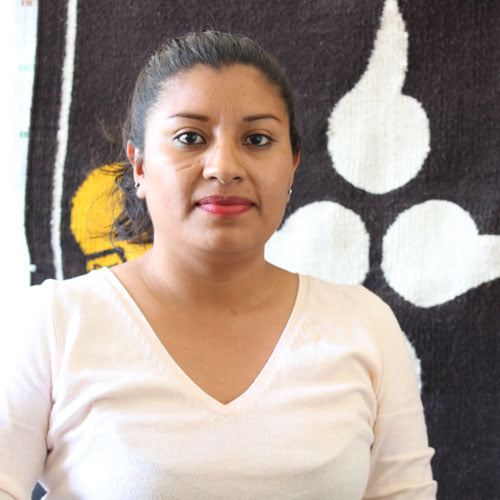
Elena García Ortega, intérprete y traductora de la lengua Ayuuk (Mixe), variante de Santiago Atitlán.
Elena García Ortega, interpreter and translator of Ayuuk (Mixe), variant from Santiago Atitlán.
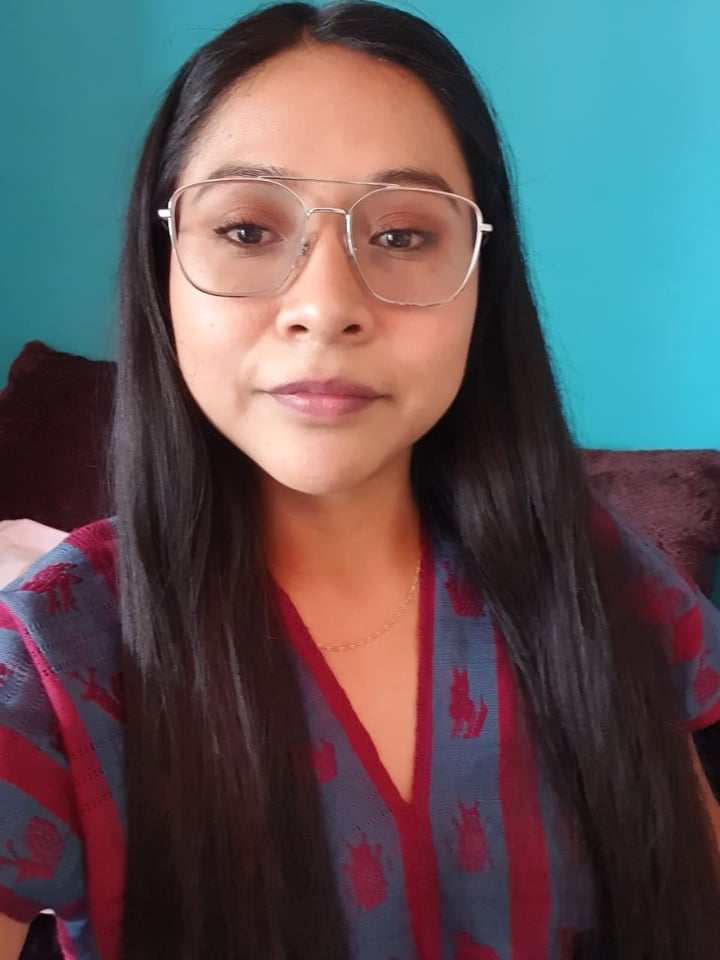
Gaby León Ortíz, intérprete y traductora de la lengua Tu’un savi (Mixteco), variante de Santa María Yucunicoco.
Gaby León Ortíz, interpreter and translator of Tu’un savi (Mixteco), variant from Santa María Yucunicoco.